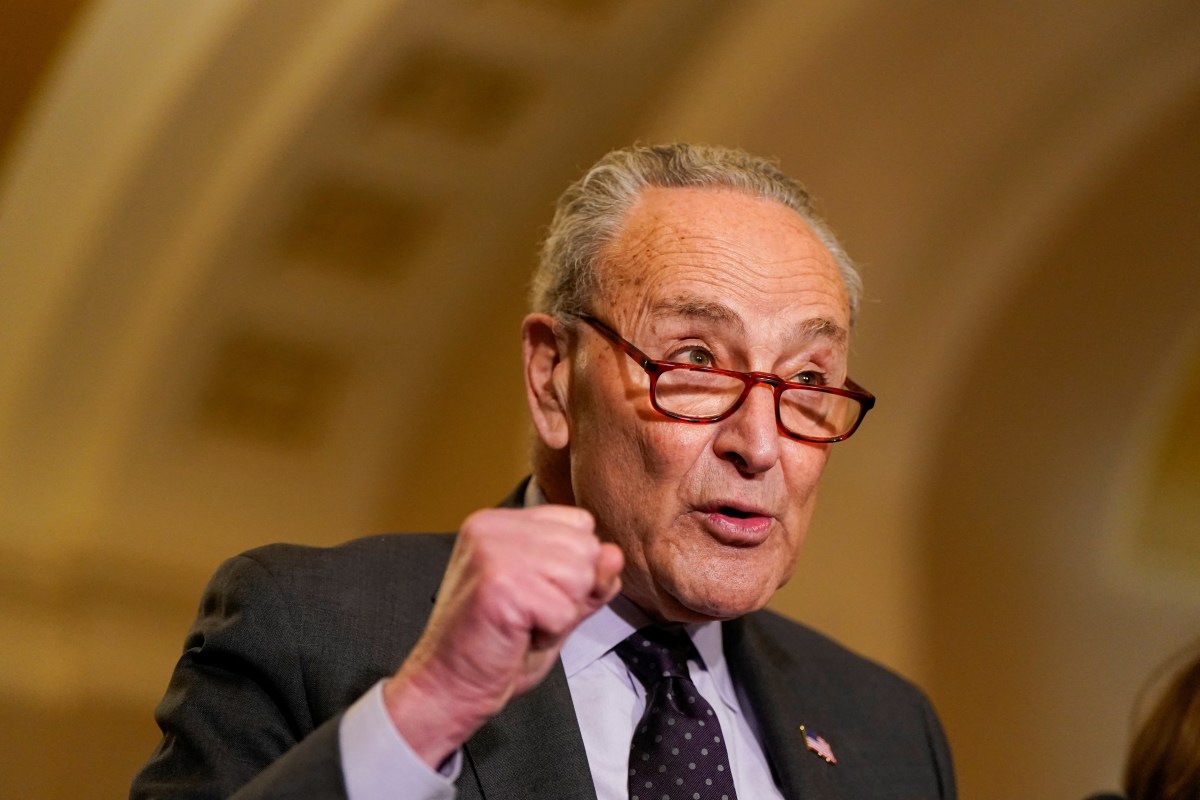
In the midst of a public battle to dismantle the Consumer Financial Protection Bureau (CFPB) , U.S. Senator Chuck Schumer raised the alarm on what he calls the “final leg” of a quiet plan to increase bank fees for millions of Americans.
Schumer revealed on March 30 that Republicans in the House plan to vote on Tuesday, April 1, to overturn the CFPB’s overdraft fee rule. The rule, designed to cap most big bank overdraft fees at just $5, could be scrapped if the GOP moves forward with its plan, he warned. The senator strongly opposes the effort, emphasizing that New Yorkers would be hit hardest due to the state’s higher-than-average number of bank accounts.

He pointed out that the rule saves consumers more than $5 billion annually in excessive overdraft fees, and its removal could cost households at least $225 more per year—likely even more in New York. Get amNY in your inbox! “Republicans’ quiet plan to side with big banks could mean a waterfall of fees for New Yorkers that should not see the light of day,” said Schumer. “I urge my GOP colleagues to reverse course here and reject overturning this overdraft rule to put money back in people’s pockets and out of the hands of big predatory banks.
If the Republicans let this one fee fly, a waterfall of fees will follow, and it is New Yorkers that will feel the brunt.” Schumer argued that banks do not need to impose these high overdraft fees, calling them an unnecessary financial burden on working families. He warned that removing the cap on overdraft fees could open the door to even more charges across New York City and Long Island.
House Financial Services Committee Chairman French Hill (R-AR) and Senate Banking Committee Chairman Tim Scott (R-SC) introduced Congressional Review Act (CRA) resolutions last month to overturn the CFPB’s overdraft rule. The Senate has already approved the measure, and now the House is set to vote. The CFPB’s rule caps overdraft fees at $5, a significant reduction from the previous average of $35 per overdraft, according to the National Consumer Law Center (NCLC).
Some banks, such as Capital One and Citibank, have voluntarily eliminated overdraft fees and continue to cover overdrafts, Schumer noted. However, other major banks continue to rake in billions from overdraft and insufficient funds (NSF) fees, with Wells Fargo among the worst offenders. The CFPB rule aims to curb these predatory practices while still allowing banks to offer overdraft coverage, provided they follow fair lending guidelines and transparent pricing disclosures.
Schumer highlighted that New York, a state with a highly banked population, would especially benefit from the rule. He emphasized that reducing overdraft fees promotes fair competition and prevents manipulative banking practices. Beyond overdraft fees, Schumer warned that if this rule is overturned, other consumer protections could be at risk.
He pointed to potential increases in ATM fees, minimum balance fees, cashier’s check fees, account inactivity fees, and even the removal of an $8 cap on credit card late fees..















